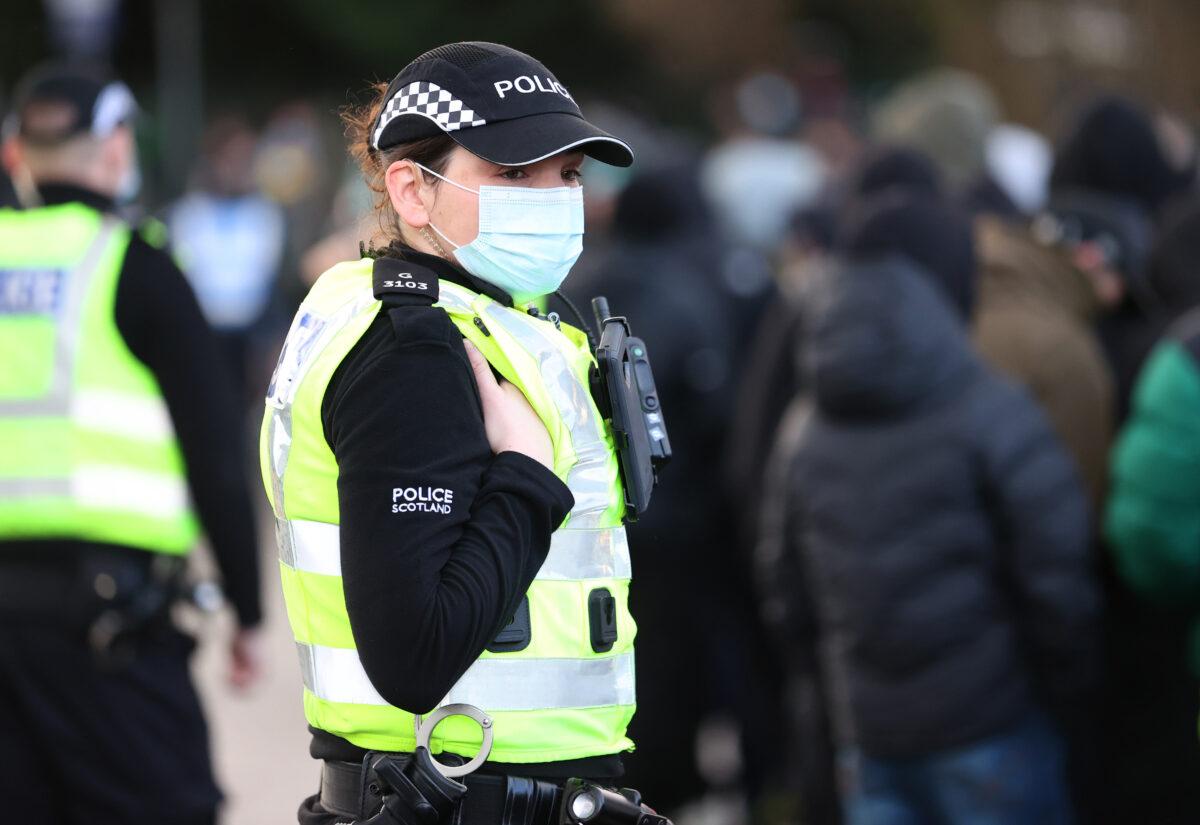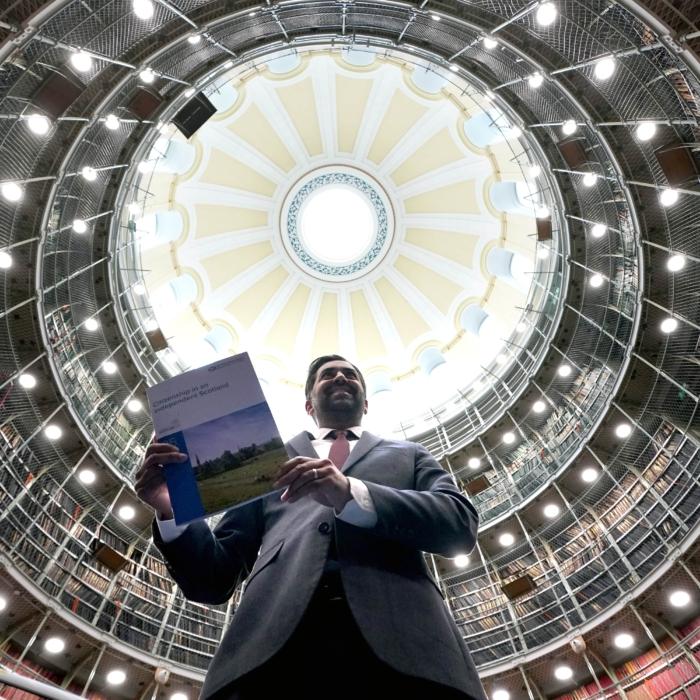A Scottish Conservative politician is considering legal action against the police after he discovered a post he made criticising the government’s transgender policy was logged as a non-crime hate incident.
Murdo Fraser, who is being supported by the Free Speech Union, claimed the recording is “unlawful” and accused police of breaching the Data Protection Act, the Human Rights Act, and the Equality Act.
Police Scotland defended the use of non-crime hate incidents (NCHIs) to The Epoch Times, saying that “seemingly low-level or minor events can have a significant impact on someone who may already be very vulnerable.”
Non-Crime Hate Incidents
Mr. Fraser wrote that “choosing to identify as ‘non-binary’ is as valid as choosing to identify as a cat. I’m not sure governments should be spending time on action plans for either.”A trans activist then reported his post to Police Scotland claiming that it constituted hatred against non-binary or transgender people.
Despite no crime being committed, a “hate incident (non-crime incident)” was recorded against Mr. Fraser without his knowledge.
British police have been encouraging the public to report NCHIs, described as “any non-crime incident which is perceived by the victim or any other person to be motivated by hostility or prejudice,” on official hate crime sites.
Scottish police say they take reports of these incidents “very seriously.” As a matter of policy, Police Scotland record all NCHIs.
‘Stirring Up of Hatred Offences’
The legal threat emerges as the country is preparing to implement its contentious hate crime laws, scheduled to come into effect on April 1.The Scottish National Party’s Hate Crime and Public Order (Scotland) Act, introduced by First Minister Humza Yousaf when he was justice secretary, was approved by the Scottish Parliament in 2021 and has received Royal Ascent. It had been dormant until now.
The law creates new a crime of “stirring up of hatred offences” for protected characteristics, including “age, disability, religion, sexual orientation, and transgender identity.”
In his letter to Police Scotland’s Professional Standards Department, Mr. Fraser said that the force’s current policy on the recording of NCHIs is not compliant with UK law, and its action in recording a “hate incident” connected to him is “unlawful.”
He said that he wants Police Scotland to change its guidance for the reporting and recording of hate crimes to align it with UK and international human rights law, and permanently delete its record of the hate incident (non-crime incident) recorded against him.
“I have assiduously pursued all available means of resolving this matter and now reserve all rights to seek the deletion of the hate incident (non-crime incident) and amendment of the unlawful policy by way of judicial review and/or by way of a civil claim in the sheriff court as applicable,” he said.

Reacting to the news on X, the author of the column that Mr. Fraser posted, Susan Dalgety, said she was checking if the police also held information on her.
“Completing a subject access request now, though can’t quite believe I am having to do this,” she wrote.
A Police Scotland spokeswoman confirmed to The Epoch Times by email that the incident was recorded as a non-crime hate incident and that it had received a complaint relating to this matter which had been passed to the Professional Standards Department for assessment.
She said that “hate incidents are not recorded against alleged perpetrators.”
“Recording is victim-focused and the process has been part of policing for many years. It helps us monitor tensions within communities enabling appropriate police responses and helps to build community confidence. Seemingly low-level or minor events can have a significant impact on someone who may already be very vulnerable,” she added.
Harry Miller
In his letter, Mr. Fraser mentioned that in 2021, a top court ruled that the College of Policing guidance on recording NCHIs violated former police officer Harry Miller’s freedom of expression as set out in Article 10 of the European Convention of Human Rights.Mr. Miller had brought a judicial review against the professional body for the police in England and Wales, the College of Policing, and Humberside Police after an officer visited him at work to “check his thinking” over reposting a gender-critical limerick on Twitter.
The Epoch Times contacted the Scottish Government for comment.







